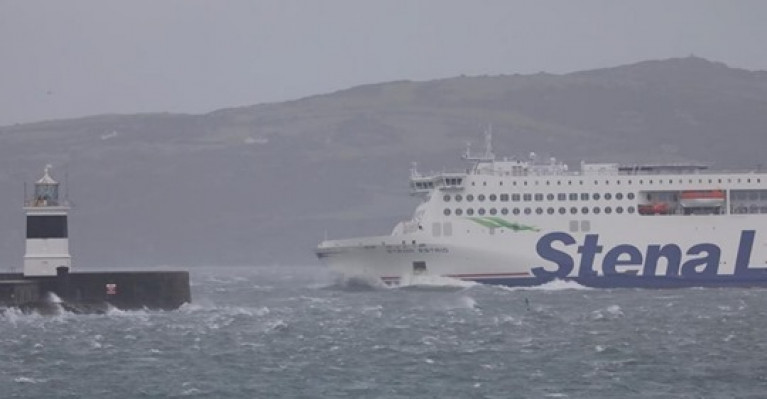Displaying items by tag: Ferry disruption
Sailing Disruption As Isle of Man Ferry is to Require Repairs
Sailings to and from the Isle of Man will be disrupted at the end of the month as the ferry Ben-my-Chree undergoes repairs.
The ferry operator, the Isle of Man Steam Packet Company said the (fastferry) Manannan would undertake daytime crossings between Douglas and Heysham from 30 October.
Due to the "scope and complexity" of the work needed, the Ben-my-Chree would be at Cammell Laird's (shipyard) facility for six days, the firm added.
Overnight freight sailings would be carried out by MV Arrow.
The vessel, which had been held on a long-term lease, was recently bought by the ferry firm as Afloat previously reported on the 84 trailer unit capacity freighter.
As a result of the changes, usual evening passenger sailings from the island to Lancashire, and the overnight return will not take place.
More from BBC News including an apology from the ferry operator due to the disruption.
Stena Ship Circles Dublin Bay Before Arriving in Port While Other Ferries Face Disruption
As Afloat reported this afternoon the impact of Storm Barra on shipping included Stena Estrid which finally entered Dublin Port albeit some 3 and a 1/2 hours late, ironically the same time it takes to sail from Holyhead, writes Jehan Ashmore
When the Wales-Ireland ferry could not enter the port at around 12 noon due to the heavy gusts, Stena Estrid had to ride out the storm during the Orange status weather warning. This led to the ferry head as far off the Co.Wicklow coast before returning to Dublin Bay.
It transpires the ferry did not enter Dublin Port as previously envisaged, has as soon as Afloat reported, the leadship E-flexer class ferry was observed heading back out into Dublin Bay. The ferry then circled around the bay's north and south Burford buoys, before returning again to the north Burford bouy off the Baily Lighthouse to begin finally an inbound sailing
This took place from mid-afternoon, however likewise of fleetmate Stena Adventurer which too was disrupted this morning until tugs arrived to enable a departure, the Stena Estrid had a pair of tugs to assist arrival when berthing in the port.
Note on this occasion of the DPC tug pair, only Beaufort resumed further duties as the second tug required this time involved the Giano. The ASD excort tug is operated by Purple Water Towing with an address in Mary's Abbey, Dublin 7.
Giano handled towing operations on the starboard side of Stena Estrid with Beaufort attended at the stern with moorings in place at the berth conducted around 15.50hrs. Following the exchange between discharge and loading of vehicles and passengers, the ferry is according to the Dublin Port website to depart at 1800hrs.
Noting, Irish Ferries chartered in ropax Epsilon had departed Dublin since 0740hrs, having had sailings cancelled. The ropax though vacated its berth which are at premium in the port and continues to ride out the storm offshore of north Co. Dublin. On the other side of the Irish Sea, Ulysses having previously been reported when sailing to the port in Anglesey, was completed when berthing adjacent to Stena Adventurer.
Another Dublin ferry albeit mostly dedicated to the continental link to Cherbourg, in the form of W.B. Yeats which resumed sailings late last night. The 17-19 hour crossing to France has still yet to be completed with an ETA of 20.00hrs tonight, but not as impacted to the Dublin Bay scene.
The Irish Ferries cruiseferry is fresh from a routine winter dry-docking which took place at the Harland & Wolff Group's Belfast facility.
























































